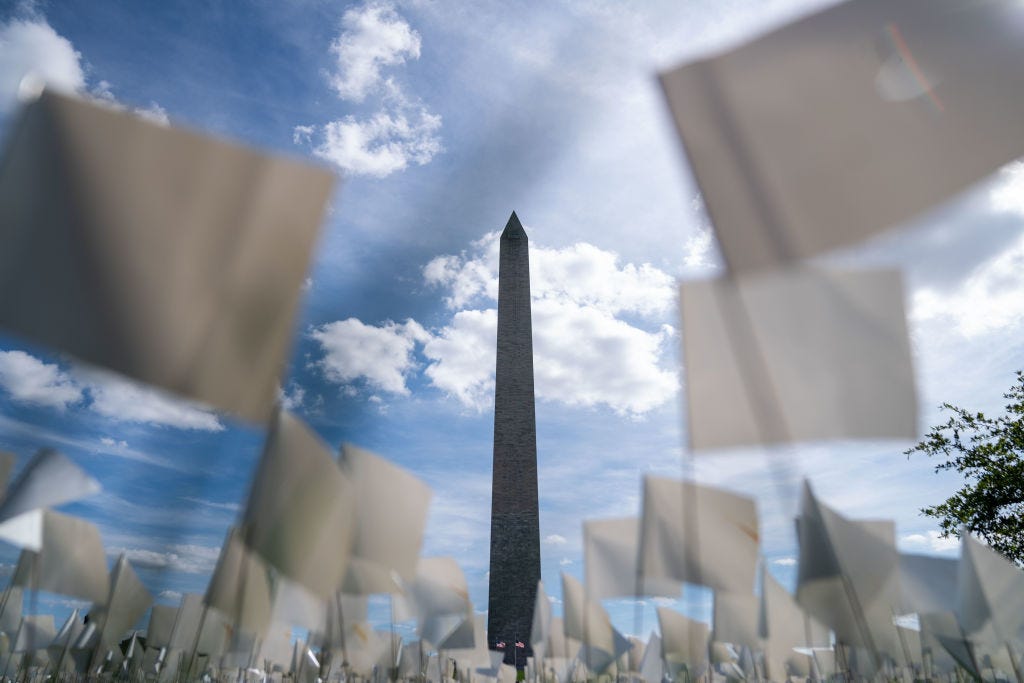Hopeless in America
Remember Medicare for All?
I don’t write much about single-payer or Medicare for All anymore, at least not directly; this whole newsletter is sort of about why we need those things, but I’m rarely writing about the actual policy, even when I’m describing things that it could fix. When I used to write about Medicare for All, it made sense to me to do so, because I believed it was possible that Bernie Sanders could become president. I don’t think anyone could confidently say what politics would look like after that, and sure, it could have included Medicare for All, or something close, or at least something significantly better than all this. (I certainly think Bernie’s much-mocked suggestion of holding rallies in West Virginia to persuade Joe Manchin could only have had better outcomes than whatever Joe Biden has done to get nothing at all from him. At least someone might have keyed his car on their way out of the state.) I used to spend time thinking about how things would work under Medicare for All, like how the government would decide which drugs to cover, or what we could do to stop private insurance from creeping back in.
Now, writing about how healthcare would work under Medicare for All feels like picking out the type of bathroom tile I’d put in my mansion: Theoretically achievable, and maybe helpful for figuring out what I might want in less perfect circumstances, but mostly just depressing. God bless anyone who doesn’t let that stop them, sincerely, but it’s not me. I don’t have room for hope, or the strength of character to hold onto it in spite of everything.
And then something like this comes along: A study estimating that the United States could have seen 212,000 fewer deaths from coronavirus if we had single-payer healthcare.
The study, published in PNAS, identifies several catastrophic factors behind the United States’ miserably high death toll that a single-payer system would have avoided. Better primary care and reduced comorbidities, for example, would have left far fewer people vulnerable to the virus; the lack of insurance ‘churn,’ the sanitized term for people losing their health insurance, would have made it easier for sick people to see the doctor. It is full of straightforwardly true points like this that reflect our maddening reality, for example: “Removing financial obstacles to care can accelerate diagnosis. More timely medical attention increases the probability of recovery from COVID-19 infection.” Completely obvious, and yet totally unaddressed by our non-system, and with no proposed remedies on the horizon. Not even close.
It’s a little shock to the system, to remember exactly how different things could have been, after two years of getting used to the idea of things being the same forever. It hurts, and it doesn’t do to go around thinking about it all the time, in a world where a Democratic Congress can’t even find its way to giving more free money to insurance companies so that people can keep their bad coverage. It takes effort to remind yourself that better things are possible when the Better Things Aren’t Possible crowd has an iron grip on politics and the discourse. We really could have had all this; it is absolutely within the United States’ capacity to do so. Other places have it right now. And people died because we didn’t. I am not strong enough to find hope again, here in the darkness, but it is still good, sometimes, to open the blinds and let the harsh light in.
Keep reading with a 7-day free trial
Subscribe to Sick Note to keep reading this post and get 7 days of free access to the full post archives.



